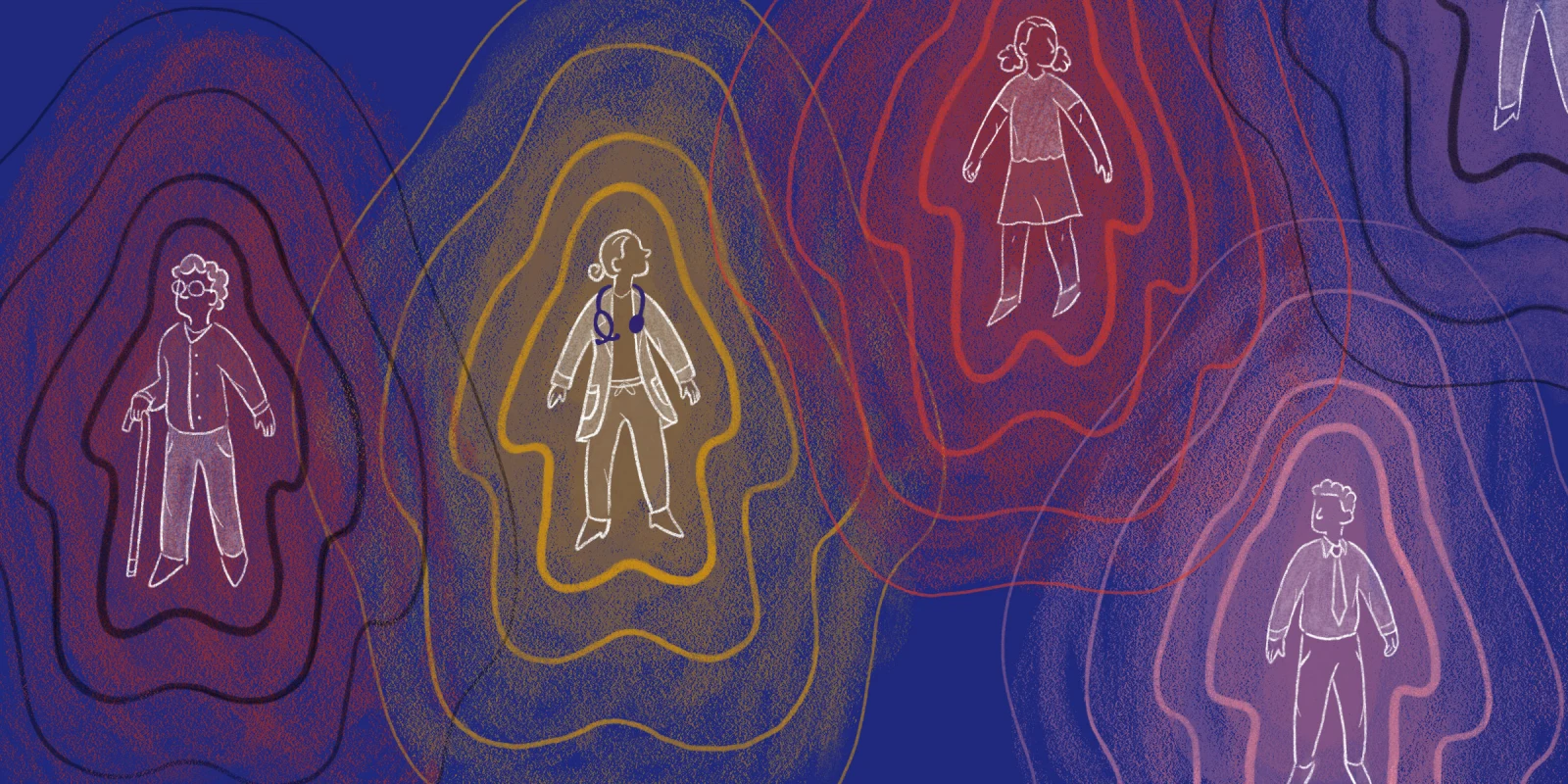For medical trainees like myself, our patients have an integral role in shaping the medical training experience. As a new psychiatry resident physician, the patients I have had the privilege to meet in the hospital as first a medical student and now a resident have been my greatest teachers. Through them, I have learned what a privilege it is to be part of something as personal as someone’s health and to be able to witness the vulnerability of humanity firsthand. Below, I share two important lessons I learned from patients that I hope to hold on to throughout my residency training and career as a psychiatrist.
1) Remember the humanism in medicine.
While most physicians are well aware of the responsibility that comes with the job, I think the humanistic aspects of medicine and the importance of maintaining human connection with patients are often overlooked. Patients are far too often reduced to numbers and diagnoses, causing us to lose sight of their identities as people.
I have seen this patient reduction firsthand. When I was growing up, I would often translate for my Yoruba-speaking Nigerian grandmother at her medical appointments after school. My grandmother would routinely ask me to attend her appointments with her because when she went alone, she would return without resolutions. I witnessed how language barriers and cultural divides in health care limited the quality of care she was able to receive. To counter this, we converted our frustration into daily English lessons. My experience translating for my grandmother heavily shaped my view of health care and catalyzed my desire to improve access to care as a physician.
Accordingly, some of the most powerful moments for me as a medical student rotating through different services were the instances when the team took extra time to name the vulnerability that a patient was feeling and to sit with the person in their fear and discomfort, even if just for a couple of seconds before we moved on to the next patient. Patients in the hospital put so much of their trust in their treatment teams, which typically consist of complete strangers, sometimes speaking a language that is completely foreign. My patients have taught me that prioritizing humanism in medicine can strengthen patient-clinician relationships, address historical mistrust, and increase patient compliance.
2) Do not be afraid to feel emotions.
One of the first things I noticed on my clinical rotations is how easy it can be to distance oneself from the patients we treat and their experience in the hospital. Although I understand the importance of creating clear professional boundaries between ourselves and our patients, I also believe that being too removed or distant can contribute to physician burnout and cause clinicians to become jaded. My patients have taught me that being able to feel emotions and resist the stoic culture of medicine is crucial to becoming a well-rounded, compassionate, and culturally competent clinician.
As a medical student with an interest in psychiatry, I thought I had to develop a hardened exterior to prevent myself from becoming too emotionally invested in the hospital. Toward the end of my clinical clerkships, I met a patient with spinal abscesses and a myriad of other medical complications. Although she was extremely sick, she made considerable progress during her hospital stay and surprised her family with her strength and will to live. After three weeks in the hospital, it became clear that treatment was becoming futile and any invasive procedures would kill her faster than the infection. I felt extremely defeated that we had dedicated so much time to treating her but couldn’t figure out how to save her. Per the patient’s request, we organized a family meeting to discuss her bleak prognosis and hospice.
At the end of the meeting, as I watched her family members hug each other and wipe away their tears, I could feel tears welling up in my own eyes. I was embarrassed that I wasn’t able to maintain a neutral exterior, and focused hard on not letting any tears fall. At the end of the meeting, one of the patient’s daughters hugged me and said “We know how much you care.” Although I was still embarrassed, my attending and I discussed the importance of feeling emotions rather than suppressing all feelings and becoming numb to the pain that our patients feel. We discussed how to cope with loss in medicine and how to lean on our team to unpack difficult patient cases. My initial embarrassment turned into a cathartic relief that I am not alone in my feelings.
Despite how hard it was to watch my patient’s condition deteriorate before my eyes, I learned how to process grief in the hospital and comfort future patients and their families. I am forever grateful for the humbling experience.
For medical trainees and students like myself, our patients play such an integral role in the type of healer that we will become. I am incredibly grateful for the opportunity to make a difference in the lives of these patients.
To my patients; past, current, and future, thank you for allowing me to take part in your medical journey. Thank you for your patience and vulnerability. Thank you for the lessons you have taught me and the possibilities you have opened my eyes to. I hope that together we can continue advocating for a more equitable, caring, and patient-centered health care system.
What lessons have you learned from your patients? Share in the comments!
Abiba Salahou is a resident physician in the department of psychiatry at Yale University SOM. Abiba plans to serve diverse communities as a child and adolescent psychiatrist, and is passionate about restorative social justice, de-stigmatizing mental illness, creative writing, and food blogging. She tweets at @AbibaSalahouMed. Abiba was a 2022–2023 Doximity Op-Med Fellow.
Illustration by Diana Connolly







